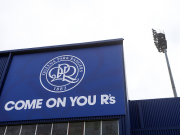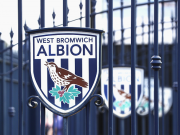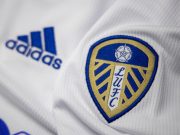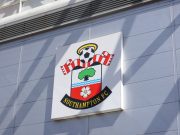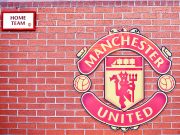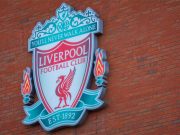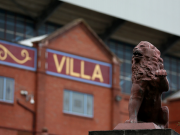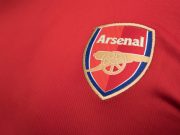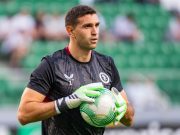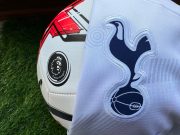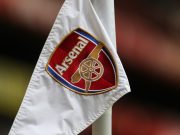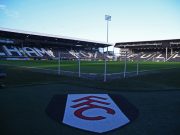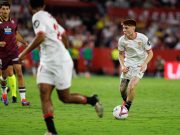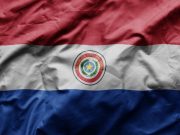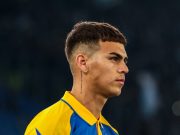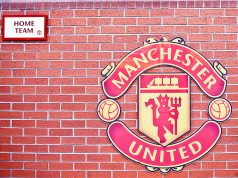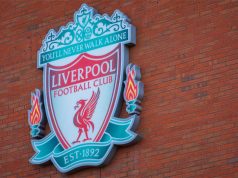“Yes, it really happened, you didn’t dream it!”, said a random Facebook post on my wall which I was scrolling through while waiting for inspiration for the good opening paragraph of this article.
And that’s perfect, really, because it does feel like a dream. Croatia is in the semi-finals of the World Cup.
And in what way! After spending 510 minutes on the pitch, more than any other semi-finalist, after 2 penalty shootouts, after going through the “Group of Death”, and all this despite everything that’s happening in Croatia, both in football and in life generally.
It’s no surprise the team and the nation are ecstatic, just like 20 years ago.
If you read any article about Croatia’s campaign in Russia so far, I bet there was at least one reference to the glory days of France 1998: Boban, Šuker, Prosinečki, lead by the legend Miroslav Ćiro Blažević, came to Croatia’s first World Cup as an independent country, played great football and would perhaps win the whole thing if it wasn’t for Lillian Thuram and the only 2 goals in his France career.
Croatia came home with a bronze medal that had a golden shine for every single person in the country.
We are back in a semi-final now, with a chance to repeat the success of 1998 or go one step further. These players are at least equally as good as the ones from the bronze generation, and the team spirit and atmosphere are as high as back then.
This is often the key thing when it comes to Croatian teams in any sport, perhaps even Balkan in general – team spirit and great atmosphere. Most of our players play for big European clubs and are often key figures there, but when they come to the national team, it’s all different, it all goes up to another level, and they are more motivated by love for the “holy shirt” than any money. And that’s what us, regular football fans back home, really love and appreciate.
Luckily, now we have a coach that thinks the same. Coach Dalić, who’s originally from Livno in Bosnia & Herzegovina, said a few times in the run-up to the World Cup that he’s not here to teach these players how to play football – they all do it amazingly well already. He’s here to study the opponent, come up with the best tactics possible, create a great atmosphere in the team and put the pieces together to create something that could top what one of his mentors, Blažević, did in 1998.
Zlatko Dalić learned from Ćiro at NK Varteks in Varaždin, where he started as the assistant coach to the big man until Ćiro went to Hajduk and left Varteks to Dalić. These early years, learning from one of the greatest coaches in Croatian history, were very important and you can see a bit of Ćiro in him sometimes.
He was the assistant coach for Croatia U21s, took charge of Dinamo Tirana, and then embarked on an adventure in the Middle East, first in Saudi Arabia and then the United Arab Emirates.
He was loved there, winning trophies with Al Hilal and Al Ain, and was named coach of the year in UAE in 2016. After that, he took a little break before the biggest challenge of his career so far.
He loves to say he did all of this by himself with hard work, without managers and agencies. He is a good tactician and amazing at preparing teams for matches. He’s also eager to learn from those more experienced and more knowledgeable in certain fields than he is.
In Russia, he has with him his old friend Dražen Ladić, the goalkeeper from France 1998 and former manager of Croatia U21. He also has Ivica Olić, the fantastic striker who never seemed too tired to make one more run towards the goalkeeper.
He even made the team international by bringing Scotsman Marc Rochon with him, who is a bit like a secret agent in the stands.
During the match, he monitors every move of every player from the stands and signals to Dalić, through headphones, what should be improved. In preparations, he does video analysis of the opponent and tracks players’ movements in training along with GPS and health data.
I think to myself maybe we could have won that gold in 1998 if this technology was available, but Dalić is a bit more open to suggestions and less stubborn than Ćiro was.
It’s not all about preps and data and stats and videos. The secret ingredient for the success of a national team will always be a nice mixture of great atmosphere and national pride. We have players like that today.
Take, for example, Ivan Rakitić, one of the key players in this generation. He was born and raised in Switzerland and chose to wear “the best shirt in the world”, as he called it in his story for The Players’ Tribune. He was playing for Swiss youth teams and it wasn’t until 10 years ago, when Slaven Bilić himself came to talk to him, that he decided to choose Croatia.
What did Slaven do to convince him? He was just being himself, talked to Ivan about football and what he had planned for Croatia, and Ivan was hooked. “Don’t think about anything else, just enjoy football”, Slaven told Ivan after he informed him about his decision. Ivan’s father was in tears. And sure, Ivan did enjoy it with Croatia, well, most of the time.
Sometimes, in Croatia, it’s really hard not to think about anything else, even for footballers who “have it all”.
A few years ago, Ivan had an unpleasant experience with some fans. He was on holiday in Croatia with his wife and children, and some hooligans threw stones at his holiday home, breaking some windows, in order to send a message about… well, I’m not too sure.
About the bad situation in Croatian football? About Mamić and all the stuff he’s done? About relations between Zagreb and Split? They surely have lots of motivation – in their eyes – but that is definitely not a way to deal with your frustrations. Especially not towards a player who could easily have chosen to represent a different country and wouldn’t have scored the 2 crucial penalties to make it to this stage.
He wasn’t, of course, the sole hero of those nerve-wracking nights in Russia.
Against the host, it was Domagoj Vida who almost brought the win for Croatia in the first period of extra time and nearly became the nation’s hero. Often a bit underrated (by me, I admit), Vida has always been there for the national team and gave his best performances wearing the checkers. The match against Russia was definitely one of them.
Afterwards, he was the typical Domagoj Vida, that we all know and love here. Somewhat a bad boy, a bećar, as they say in the Slavonia region where he’s from, which basically means a young, mischievous man who loves to party, drinks rakija, and flirts with women. He was like that for most of his life, according to his parents.
Domagoj comes from a footballing family. His father Rudika was a prolific striker, playing for NK Osijek and NK Belišće in the Croatian league’s early years, especially known for scoring 26 league goals in the 1993/94 season when he was 31 years old. It seems that was less challenging than raising Domagoj!
In his youth days at NK Osijek, he loved to pull pranks with his friends.
There is a story, when he got his own room in a student dorm in Osijek, he hated being controlled so much he drilled a hole in the door in order to see who was coming to check on him! He was kicked out and his parents had to rent him an apartment for 6 months before the dorm took him back in.
Domagoj is still like that, his first comments after Russia weren’t “yeah, let’s rest and get ready for England”, but “we’ll party and then goes England”. His dad says “You always first hear Domagoj before you see him”, and that’s what makes him so lovable, even when he is not on top of his game.
One of the other heroes in the match against Russia, and against Denmark as well, was definitely Danijel Subašić, our goalkeeper who didn’t save a single penalty for his club Monaco during the last season only to save 3 against Denmark and 1 against Russia, on top of other brilliant saves during the whole tournament.
Amazing saves aside, people have noticed something else about him – the t-shirt he wears under his shirt in every single match. This story is not as cheerful as Vida’s.
The t-shirt is not always the same in design but has the same message – a picture of a young footballer and the word FOREVER. The man is Hrvoje Ćustić, who sadly passed away after being injured during a football match in 2008, at only 25 years of age.
Danijel and Hrvoje were best friends since childhood, playing for NK Zadar through the youth ranks up to Croatian league level, until that awful day. It was a league match against Cibalia, at the Zadar stadium which had a concrete wall surrounding it. Danijel passed the ball towards Hrvoje who tried to get to it along with one other player, and at that moment he hit his head on the concrete wall. The whole stadium went silent. Players were stunned. Hrvoje died 3 days later.
The wall was removed not long after, but, as it often is, way too late. Danijel never really recovered from that and carries the memory of his best friend with him in every single match, dedicates everything good he does to him up there in heaven. FIFA see that as a thing to punish, while us here, and most of the footballing world really, see it as a true monument to friendship, a friendship that was built through football.
Friendships, childhood, and upbringing definitely made an impact on every player in this Croatia team. For a lot of them, it meant being raised as refugees in either Croatia or Europe.
Luka Modrić had it very hard during the war in the 1990s. He was practically raised by his grandfather in a little village on mountain Velebit near the city of Zadar, while his parents were hard at work until the war began.
Zadar region and Velebit were one of the main battlefields so Luka and his family suffered a lot. His grandfather was taken and executed, and the rest of the family were made refugees, leaving their homes with only what they could carry, as so many did during those awful years.
He settled in Zadar, where he started his career while living in a hotel. His talent was spotted and recognised by Dinamo Zagreb, and the rest is history. A trophy and controversy-filled history.
The trophies we know all about, with the latest one coming just over a month ago, but the controversy part is something which doesn’t make Luka the favourite among a big chunk of Croatian football fans.
He was one of the witnesses and, later, accused in the trial against Croatian football’s worst figure Zdravko Mamić, along with fellow player Dejan Lovren. The trial is about contracts these players had with Mamić which meant they got 50% of the fees Dinamo received from Tottenham Hotspur and Lyon respectively, and forwarded big amounts of that money to Zdravko Mamić.
Luka talked about that in court but then suddenly forgot that he has accused Mamić… it’s not a good look for our captain for sure. Mamić was found guilty while Modrić is waiting for a decision on his false statement accusation, and Lovren is still being investigated. It’s a whole legal mumbo-jumbo which Alex Holiga explained much better than I ever could.
Modrić and Lovren weren’t the only ones, Vrsaljko and Kovačić had similar contracts with Mamić as well, it was mostly seen as a safe way to get sold and find a career abroad. Andrej Kramarić, however, refused to sign such a contract, well advised by his father. He was therefore sold to NK Rijeka rather than some big European club, and needed to fight much harder to get a spot in the national team.
Now he’s one of the key players at Hoffenheim in the Bundesliga and one we need to thank for actually being in Russia, as he scored the winning goal vs Ukraine in an additional qualifying match.
Andrej is an interesting player, who was the best scorer in all youth ranks at GNK Dinamo Zagreb, but also a big maths fan – he graduated from MIOC, a mathematical centre in Zagreb which was named the best high school in Croatia a few times. He has a fan club of sorts in the Czech Republic where there’s a village called Kramy who watch all his matches and support him with banners, without any other relation to him but the similar name.
I love to brag about him as well, since his parents are from the same village as I am. His grandma is a hit back there, always ready to talk about him, from how he wasn’t often picked by coach Čačić because of the whole Mamić thing, to how her surgery had to be postponed because the whole Kramarić family went to Russia to watch Andrej play.
We live football here in Croatia. We usually gather on city squares to watch the match altogether, with lots of beer and barbecue – and players know and appreciate that.
The perfect example is our striker Mario Mandžukić, who is from a town called Slavonski Brod, located on river Sava, who are very proud of their Mario. For the match against Russia, he donated 25,000 kuna – almost £3,000 – for beer, so every citizen that was watching the match live in the Brod’s old town Tvrđava had free beer, as much as they liked, and I wonder if it was enough.
We are simple people. We love good food, good company, and good football.
At the moment, we have that.
The situation in the country is far from good, with lots of people leaving for Germany, Ireland, Canada, while many of those who stay struggle to live through the month until their next poor pay-cheque – and don’t even get me started on the politics.
But this month of pure joy in Russia, that these players and coach Dalić brought us, helps us forget about reality for a while.
We are playing in the World Cup semi-finals. Luka Modrić can’t make a wrong pass. Danijel Subašić could save our government, we would let Lovren hold our babies and save them from everything. For this month, the sun is shining, fan anthems are on the radio, beer is running in streams and everything is red and white, and we couldn’t care less about anything else but how we will repeat Wembley 2007 in the semi-finals and then only the sky is the limit.


